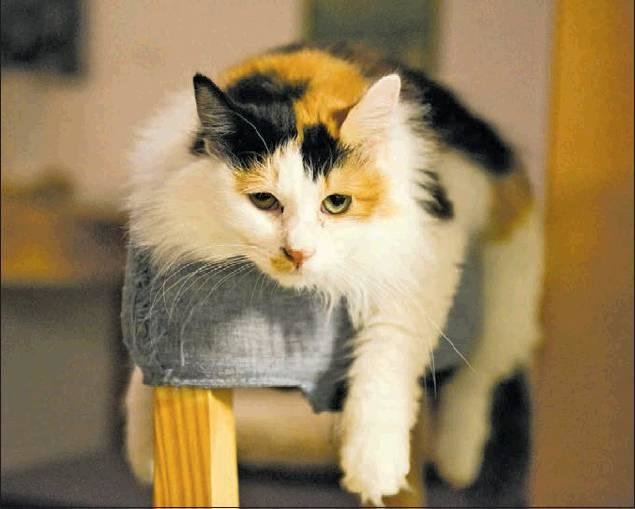Furry Friends
The heartbreak of heartworms
Iwas recently given a sad reminder of why cat owners should be aware of feline heartworm disease.
A gentleman came rushing into the office in tears with his cat limp in his arms.
His …
This item is available in full to subscribers.
Subscribe to continue reading. Already a subscriber? Sign in
Get 50% of all subscriptions for a limited time. Subscribe today.
Please log in to continueNeed an account?
|
Furry Friends
The heartbreak of heartworms
Iwas recently given a sad reminder of why cat owners should be aware of feline heartworm disease.
A gentleman came rushing into the office in tears with his cat limp in his arms.
His beloved kitty had died, and it was too late for us to do anything.
He didn’t know what had happened. His cat had been fine and playing with him the night before but had suddenly collapsed that morning.
When I examined the heart and lungs, I found an adult heartworm present in the blood vessels of the lungs.
His cat had died from feline heartworm disease. He didn’t know it could have been prevented.
Facts about feline heart-worm disease:
• Feline heartworm disease has been diagnosed in all 50 states.
• Indoor and outdoor cats are both at risk for heart-worm disease.
• It only takes one mosquito to transmit the disease.
• Cats who live in areas of larger mosquito populations (think the South) are at even greater risk.
• Heartworm disease in cats is different than in dogs.
A cat is infected when a mosquito carrying heart-worm larvae bites it.
The microscopic larvae eventually reach the cat’s lungs through the cardiopulmonary blood flow. Some cats will experience heart-worm associated respiratory disease signs.
In dogs heartworms primarily affect the heart. In cats the larvae affect the lungs and can potentially mature to adult heartworms.
Most larvae don’t make it to adulthood which means they will die in the cat’s lung.
The adult heartworm can live up to 2-3 years. The death of the adult heart-worm can cause severe heart inflammation which can result in sudden collapse and death in an otherwise healthy appearing cat.
The infected cats develop breathing problems which can be mistaken for asthma or allergic bronchitis.
Symptoms of heartworm disease may include coughing, gagging, asthma-like attacks (panting, open-mouthed breathing, rapid breathing), lethargy, periodic vomiting, loss of appetite, weight loss, and diarrhea.
Occasionally an affected cat may have difficulty walking, experience fainting or seizures, or suffer from fluid accumulation in the abdomen.
Should you see any of these clinical signs, please make an appointment with your veterinarian.
Unfortunately, the first sign in some cases is sudden collapse or death.
There is no cure for feline heartworm disease. The medication used to treat heartworm infection in dogs cannot be used in cats.
The good news is it is close to 100% preventable.
Indoor and outdoor cats both need to be treated with a preventative.
In a North Carolina study it was found that 28% of the cats diagnosed with heart-worm disease were inside-only cats. How many times have you seen a mosquito in your house?
Testing for heartworm disease in cats includes the use of both an antigen and an antibody test.
Sometimes vets use x-rays or ultrasound to look for heartworm infection.
What if your cat is tested and comes up positive? Since cats are not the ideal host for heartworms, some infections may resolve on their own. However, these infections can still leave cats with damage to their respiratory system.
Cats with heartworm disease can often be helped with good veterinary care. The goal is to stabilize your cat and determine the best long-term treatment plan.
Heartworm preventatives come as topical or oral medications. Your veterinarian can help you select the right product for your cat.
I recommend that you keep your cat on a heart-worm preventative year round just as you should for your dog. Don’t lose your cat to a disease that can be prevented.
Other items that may interest you










Comments
No comments on this item Please log in to comment by clicking here